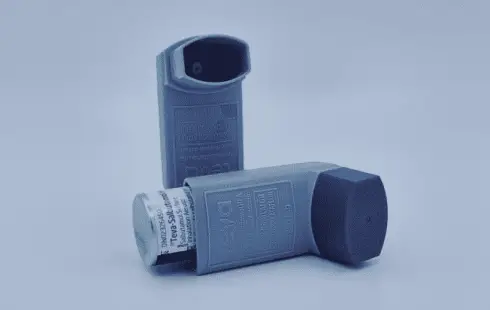
Ukrainian Diplomat Calls for Stronger Security Commitments Beyond NATO-Style Guarantees
Section: Politics
 Severe lung damage in diseases such as Covid-19 is often caused by overactive immune cells in the affected individuals. Researchers at the Technical University of Munich (TUM) have developed an RNA-based drug for a lung spray that inhibits the activity of these cells called macrophages. A new sugar-based transport mechanism efficiently delivers it to its target.
Severe lung damage in diseases such as Covid-19 is often caused by overactive immune cells in the affected individuals. Researchers at the Technical University of Munich (TUM) have developed an RNA-based drug for a lung spray that inhibits the activity of these cells called macrophages. A new sugar-based transport mechanism efficiently delivers it to its target.
In the future, severe pneumonia, such as in cases of Covid-19, could be prevented with an RNA-based drug. Researchers at TUM have developed the drug and an innovative transport mechanism. A TUM spin-off plans to begin initial clinical trials in early 2024. The drug, called RCS-21, was developed by a team led by Stefan Engelhardt, a professor of pharmacology and toxicology, to prevent severe pneumonia and fibrosis, or scarring of lung tissue, in conditions such as SARS-CoV2 infections.
Within the cell, RCS-21 inhibits the activity of the molecule microRNA 21. This nucleic acid, which Engelhardt and his team have been studying for a long time, is one of the triggers for the excessive activity of macrophages in severe pneumonia.
Medicine docks onto sugar receptors
In the journal Nature Communications, the team now describes how the drug RCS-21 is effectively delivered to its target through an inhaler. The researchers took advantage of a specific feature of macrophages for this purpose. Phagocytes are abundant even in a healthy lung. Their important task is to quickly destroy bacteria and fungal spores. They recognize these invaders, among other things, through complex sugar molecules on their surface. "In single-cell analyses, we found that the corresponding sugar receptors are among the most common receptors on macrophages," says Stefan Engelhardt. "Furthermore, the receptors are a unique feature of macrophages - they are hardly present anywhere else."
Therefore, the team coupled their drug to a sugar molecule, specifically trimannose. This approach has so far only been pursued with chemically less complex drugs. Studies with mice show clear results. "When the drug was administered as a spray, the macrophages absorbed the drug much better with sugar molecules. On the other hand, other cell types even actively excluded the molecules," says Christina Beck, joint first author of the article together with Deepak Ramanujam.
Successful drug testing
In experiments with mice, RCS-21 reduced the expression of microRNA 21 by more than half compared to control animals. Fibrosis and inflammation were also significantly reduced after treatment. Increased activity of microRNA-21 induced by infection with the SARS-CoV-2 coronavirus in human lung tissue samples infected in the laboratory could also be stopped by treatment with RCS-21.
Funded by the Ministry of Health
Studies to demonstrate the safety of the drug are already underway, with the first clinical trials in humans planned for 2024. Responsible for this is RNATICS, a spin-off of TUM. The start-up was able to convince the German Federal Ministry of Research in 2021 to fund the development of the drug with around 7 million euros.
RNATICS co-founder Stefan Engelhardt sees great potential in the mannose technology: "We have shown that nucleic acid-based drugs can be targeted specifically in the lungs using this method. This technology opens up a wide range of possibilities for the development of novel RNA-based drugs. I expect a lot of progress in this field in the coming years."

Section: Politics

Section: News

Section: News

Section: News

Section: Arts

Section: News

Section: News

Section: News

Section: News

Section: News
Both private Health Insurance in Germany and public insurance, is often complicated to navigate, not to mention expensive. As an expat, you are required to navigate this landscape within weeks of arriving, so check our FAQ on PKV. For our guide on resources and access to agents who can give you a competitive quote, try our PKV Cost comparison tool.
Germany is famous for its medical expertise and extensive number of hospitals and clinics. See this comprehensive directory of hospitals and clinics across the country, complete with links to their websites, addresses, contact info, and specializations/services.
Join us at the Kunstraum in der Au for the exhibition titled ,,Ereignis: Erzählung" by Christoph Scheuerecker, focusing on the captivating world of bees. This exhibition invites visitors to explore the intricate relationship between bees and their environment through various artistic expressions,...



No comments yet. Be the first to comment!